IRGC Officer Says 850 Killed In Two Iranian Provinces Alone In 2019 Protests
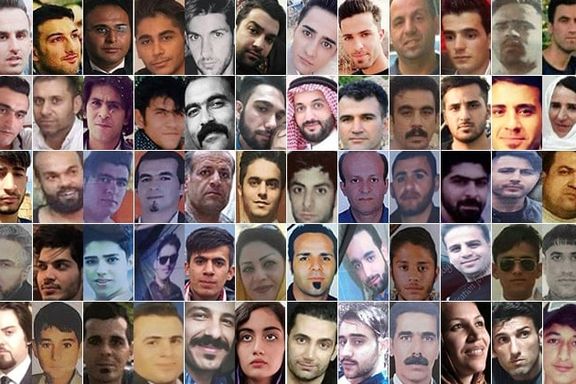
An officer of Iran’s Revolutionary Guards says about 850 people were killed in two provinces alone in the first two days of the bloody November 2019 protests.

An officer of Iran’s Revolutionary Guards says about 850 people were killed in two provinces alone in the first two days of the bloody November 2019 protests.
During the Sunday session of the Iran Atrocities Tribunal, underway behind closed doors in London, “witness 600”, who identified himself as a former senior IRGC officer, claimed that 427 people were killed in Khuzestan province and 420 in Tehran during the crackdown, adding that about 8,000 people were also arrested in the capital.
Earlier estimates ranged from 300-1,500 civilians killed nationwide. The new figure offered by the witness would mean that overall death toll was much higher.
“We were losing Tehran and Vahid Haghanian (supreme leader’s chief personal aide) from Khamenei's office ordered us to do whatever is necessary to end the chaos”, he said. Reuters had reported in December 2019 that the order to end protests at any cost had come from Khamenei.
He added that Basij paramilitary forces were also allowed to fire directly at people, noting they “fired the most and killed the most".
He said this crackdown was the only case in which military forces were not required to report on how many times or where they fired.
The tribunal − also known as Aban Tribunal after the Iranian calendar month of Aban − was established on the first anniversary of the 2019 protests by several human rights groups.
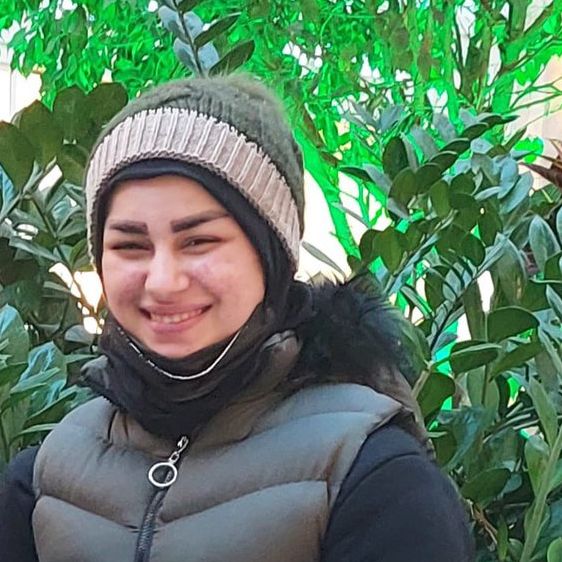
In another case of 'honor killing' in Iran, an unnamed young man has beheaded his 17-year-old wife, Mona Heydari, and displayed her head around the streets.
The murder happened in the southwestern city of Ahvaz on Saturday when the young wife was brought back from Turkey, where she had traveled for unknown reasons.
Her father helped the husband, who is his nephew, to bring the woman back to the country.
The husband and his brother, who apparently committed the murder together have been arrested.
Iran's media watchdog responded quickly and banned Rokna news agency that first released the footage of the killer carrying her wife’s head.
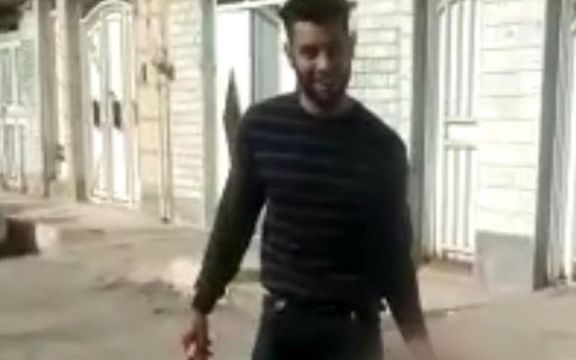
Honor killings are prevalent in some parts of Iran, mostly due to societal beliefs and the Islamic Republic’s lax laws and light sentences that encourage the behavior.
Article 630 of the Constitution exempts a husband from punishment if he kills if he witnesses adultery.
According to a women’s right NGO in Ahvaz, about 60 women have fallen victim to honor killings in the past two years, including some who were 10 or 15 years old. None of the perpetrators have been brought to justice as most of the families haven’t even filed a lawsuit.
The medical journal the Lancet published an article in October 2020, saying at least 8,000 honor killings took place in Iran between 2010 and 2014, but only a few were reported.
According to Sharia law, only the “blood owners” (the immediate family members) are allowed to demand execution for the murder of their loved one, therefore most honor killings go unpunished since families do not demand heavy punishment for another family member.
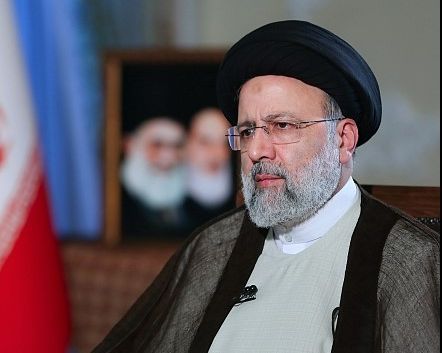
Iran is ready for more talks with Saudi Arabia if Riyadh is willing to hold the talks in an atmosphere of mutual understanding and respect, the semi-official news agency Fars quoted Iranian President Ebrahim Raisi as saying on Saturday.
Regional rivals Iran and Saudi Arabia, which severed diplomatic ties in 2016, launched direct talks hosted by Iraq last year at a time when global powers are trying to salvage a 2015 nuclear pact with Tehran, and as U.N.-led efforts to end a war in Yemen stall.
"Iran is ready to continue these negotiations until reaching an outcome, provided that the Saudis are willing to continue the negotiations in an atmosphere of mutual understanding and respect," Fars quoted Raisi as saying in a phone call with Iraqi Prime Minister Mustafa al-Kadhimi.
Iran had said earlier that its meetings with Saudi Arabia had been positive and had not complained about Riyadh’s attitude.
Saudi Arabia has described the talks as cordial but exploratory, while Tehran says they had gone a "good distance".
Recent missile and drone attacks by Iran-backed Houthis on targets in the United Arab Emirates might have affected the chances of more talks between Riyadh and Tehran.
With reporting by Reuters
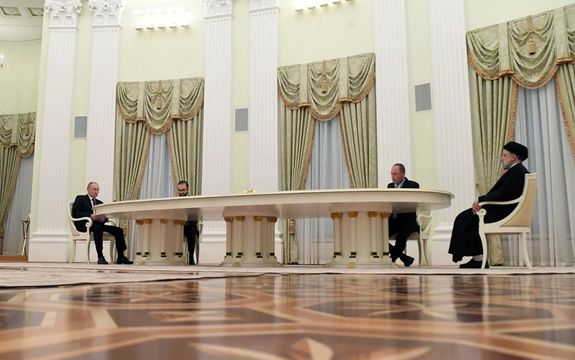
Vladimir Putin’s warm reception of the Argentinian president recently was in stark contrast to the way Kremlin treated Iran's president, many Iranians say.
Photos and videos emerged Thursday of Alberto Fernandez being warmly embraced by Putin, who sat very close to the Argentinian president in contrast to his greeting Raisi, a cleric, from a distance before the two men sat at opposite ends of a long table. This led to social-media comments claiming confirmation that Putin had not shown the respect due to the Iranian president.
Critics widely shared photos and videos of the two meetings alongside each other on various social media platforms on Friday and commented that they proved earlier claims that Putin had not shown due respect to the Iranian President.
Morteza Kazemian, journalist, told Iran International TV Friday that Putin’s reception of Fernandez proved that Raisi's treatment had been “out of the ordinary.” Clearly this showed the Russian president considered Raisi "a second-rate official” and "an executive officer" of Iran's Supreme Leader Ali Khamenei, Kazemian opined.
The Putin-Raisi January 21 meeting fed speculation over the table’s placement – for some as an intentional act to imply "distance" – over Putin apparently chewing gum, and over the absence of the two countries’ flags in the hall. A video released by Russian media after the visit apparently showed Raisi leaving the Kremlin without being seen off by Russian officials.
A conservative journalist, Mohammad Mohahjeri, called for Foreign Minister Hossein Amir-Abdollahian's resignation for failing to ensure that diplomatic protocols had been observed. The arrangements were "disgraceful," he said.
Various officials, government media, politicians, and Friday imams disagreed, insisting that Raisi had been respectfully received. They praised Raisi for praying in the Kremlin, a building seen for decades under Communism as the bastion of world atheism, and rejected criticism of Raisi’s government's efforts to expand relations with Russia and China in the face of continuing US ‘maximum pressure’ sanctions.
Some argued that Putin had kept a ‘social distance’ because Raisi had refused to abide by Covid protocols required by the Kremlin, including vaccination with the Russian Sputnik V vaccine and being tested before the meeting. They also said this was a "working visit" which did not require the ceremonial display of flags.
Fars news agency said the whole show, including the placement of the table, conformed with diplomatic protocols and suggested that Putin had been so impressed with the Iranian president that he fidgeted with his tie.

Afghans and Iraqis were involved in curbing Iranian protests in November 2019, the 'Iran Atrocities Tribunal' was told Saturday.
‘Witness 458’ told the unofficial tribunal in London, which is meeting behind closed doors and not open to most media, that as a member of Iran’s ‘Imam Ali’ anti-riot brigades he had seen the deployment of “violent criminals” as well as members of the Iraqi Popular Mobilization Forces, and the Afghan Fatimiyoun militia.
Speaking online with a covered face, witness 458 said Imam Ali brigades had set gas stations ablaze to blame the fires on the protesters and so justify suppression, and had been authorized to shoot protesters in the torso and head to end the unrest.
Witness 458 told the tribunal he had witnessed the killing of five protesters and that members of the Basij, the state-run paramilitary group, as young as 15 had helped deal with the protests, which followed a rise in rationed fuel prices from 7 cents to 10 cents a liter.
Iraq’s Popular Mobilization Forces (Hashd al-Shaabi) consist mainly of Shia Muslims and played a leading role fighting the Islamic State group (Isis) in Iraq after 2014 in coordination with Iraqi Kurdish forces and Iran’s Revolutionary Guards (IRGC). The Fatemiyoun brigades (Liwa al-Fatimiyun) are an Afghan Shia militia funded and trained by the IRGC who have been fighting in Syria to keep Iran’s ally, Bashar al-Assad in power.
In another presentation to the tribunal, Ali Rezaei played a recording of a phone call, made he said on November 17 in Karaj, from a third party taking his brother Naser Rezaei to hospital. "He has been shot in the eye,” the speaker said. “He is unconscious.” The Rezaei family have said they do not believe they can get justice for Naser, who died, through the Iranian legal system.
Assembly and collusion
Amnesty International reported the killing of at least 304 protesters including at least 23 minors during the November 2019 protests – but its report made no reference to evidence of the involvement of Iraqi or Afghan militias. Reuters in December 2019 reported that around 1,500 civilians were killed by orders of Supreme Leader Ali Khamenei to suppress the protests.
Iran has not announced figures for deaths or arrests, nor tried anyone over killing protesters, but has prosecuted and passed heavy sentences including the death penalty on protesters on charges including “assembly and collusion.” Over 700 banks as well as gas stations and police stations were targets of violence.
Saturday was the resumption of the ‘Iran atrocities tribunal’ set up in November 2020 on the first anniversary of the protests by the London-based Justice for Iran, the Oslo-based Iran Human Rights (IHR), and the international anti-capital punishment organization Ensemble Contre la Peine de Mort (Together Against the Death Penalty).
The tribunal stated its aim as investigating “atrocities” and “human rights violations by Iran” during the protests. The tribunal has so far ‘indicted’ 160 Iranian officials, but its ‘verdicts’ will be symbolic. Iran has dismissed the tribunal, with media calling it a stunt and “puppet show” with findings decided in advance.
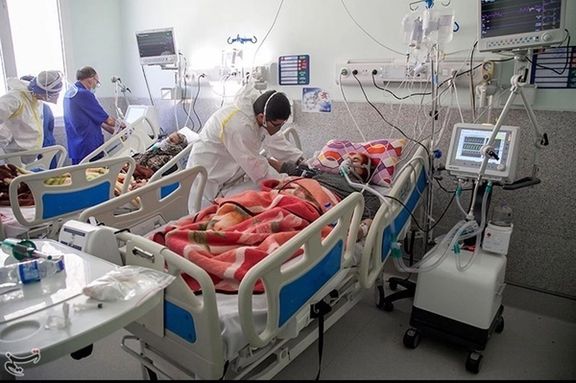
Despite the highly contagious Covid-19 Omicron variant spreading fast across Iran, President Ebrahim Raisi has rejected proposals for a nationwide shutdown.
Raisi made the decision during a session of the Covid-19 taskforce on Saturday while 120 cities are now considered "red zones”.
Instead, he proposed that the definition of the red zones should be changed in a way that the number of 'red' cities decreases.
Raisi said the country should not go into lockdown as was the case during the previous waves and restrictions should be regional and local.
Etekaf (from the Arabic for ‘adhering to’) ceremonies, scheduled this year for February 15-18, during which large numbers pray in mosques throughout day and night, were cancelled in the cities deemed red zones.
The government hasn’t announced restrictions on the Fajr film and theater festivals, and its plans remain in force to re-open schools and to hold gatherings during the ten-day Fajr period that ends on the anniversary of the 1979 Revolution on February 11.
This would not the first time the Islamic Republic seems to prioritize official events over the health and safety of people. There were media allegations that authorities played down the threat from Covid in early 2020 so as not to deter voting in the February 2020 parliamentary elections.
Health authorities, who have said the country is in a sixth wave of the pandemic, expect infections to rise to “up to”